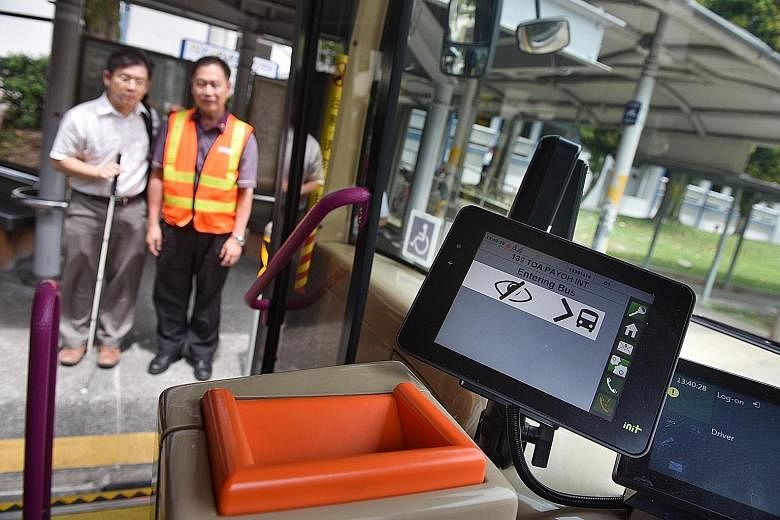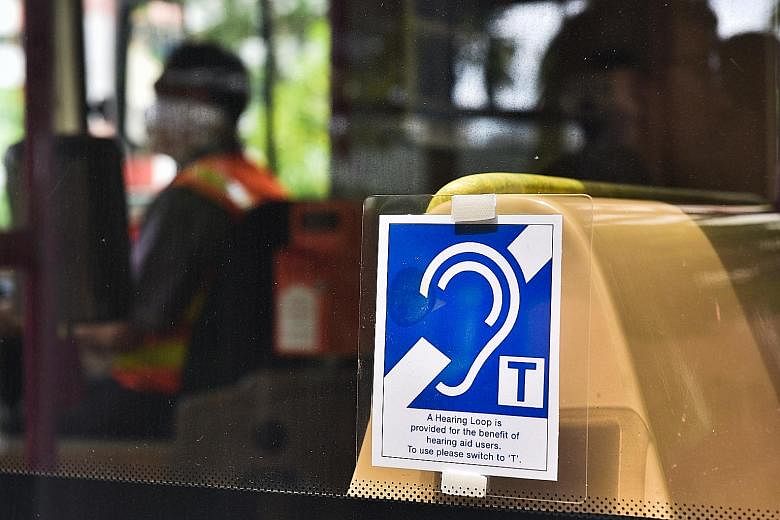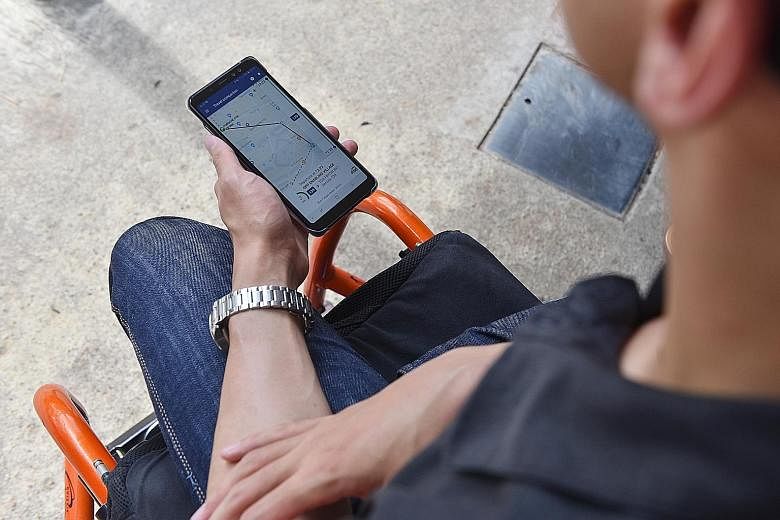A new mobile app that aims to make it easier for commuters with special needs to take public buses is on trial till end-June.
The app rolled out by the Land Transport Authority (LTA) will provide audio alerts for visually impaired commuters, while those in wheelchairs can use it to check whether there is room for them to board the bus.
The trial, which began on Monday, involves three buses from service 139 which serves the Enabling Village in Redhill.
From May to end-June, these three buses will be redeployed to service 141, which goes past the Singapore Association of the Visually Handicapped in Toa Payoh.
Thereafter, the LTA will assess if the app, named Mobility Assistance for the Visually Impaired and Special Users (Mavis), can be used on more public bus services.
Senior Minister of State for Transport Lam Pin Min announced the trial yesterday at an event in the Enabling Village, a community space dedicated to integrating people with disabilities into society, where he also shared findings of a six-month public engagement exercise for the next Land Transport Master Plan.
A common feedback point from participants was the need to make public transport more inclusive, said Dr Lam. The Mavis app does so by providing personalised journey guidance for commuters with special needs, he added.
To participate in the trial, commuters with special needs can register with SG Enable via e-mail at mavis@sgenable.sg
App users will have to select their boarding and alighting stops when submitting a request through Mavis, and bus drivers will be notified so they can provide assistance.
Visually impaired commuters can use the app to trigger an announcement from a speaker near the boarding door of the bus when it arrives. An audio announcement will also be made in the bus whenever it is approaching a stop. Passengers with hearing aids that have the T-Loop feature - a special type of sound system - will be alerted to the upcoming bus stop through the system.
IT program executive Chong Kwek Bin, 37, said the external bus speaker would be very helpful for visually impaired commuters like himself. And if the app is rolled out across the entire bus network, people with visual impairments "can even explore bus routes", he added.
A survey conducted to gather feedback on the Land Transport Master Plan 2040 found that 85 per cent of commuters are willing to accept delays of up to five minutes to allow commuters with special needs to safely board or alight trains and buses.
The public consultation, which started in August last year, received more than 7,000 responses from commuters, academics, industry players and transport workers.
The respondents gave various suggestions to improve the transport system, including widening existing paths shared by pedestrians and cyclists as an alternative to building dedicated cycling paths.
Respondents also generally agreed to prioritise the needs of commuters, such as those using buses or bicycles, over that of private car users when designing roads and paths.
In LTA's online survey, the number of people who supported reducing roads from three lanes to two lanes to create dedicated cycling paths was more than double that of those who opposed such measures.
The Land Transport Master Plan Advisory Panel will consider the views gathered and finalise recommendations to the Government by the middle of next month.




